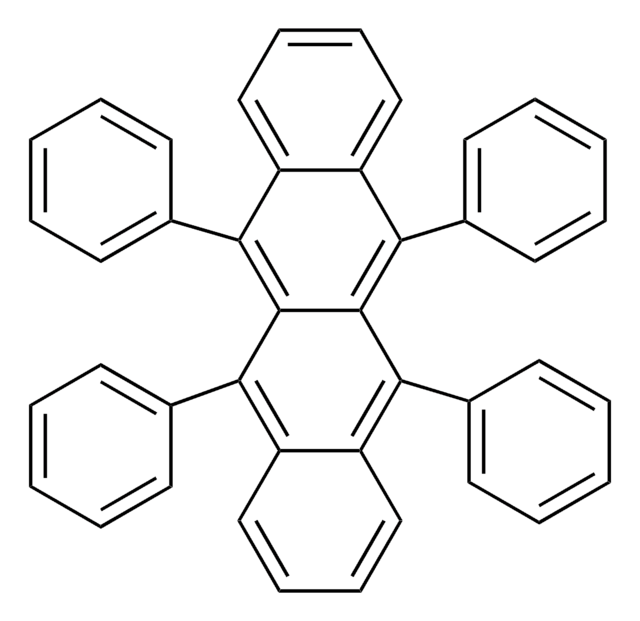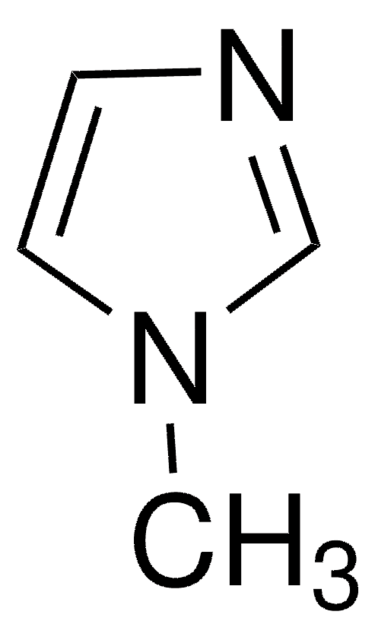716006
6,13-Bis(triisopropylsilylethynyl)pentacene
≥99% (HPLC)
Synonym(s):
TIPS pentacene
About This Item
Recommended Products
Quality Level
Assay
≥99% (HPLC)
form
solid
mp
276 °C
solubility
acetone: soluble 0.16 wt. % at 23 °C(lit.)
anisole: soluble 2.03 wt. % at 23 °C(lit.)
n-butylbenzene: soluble 3.43 wt. % at 23 °C(lit.)
toluene: soluble 6.57 wt. % at 23 °C(lit.)
density
1.104 g/cm3 at 25 °C
SMILES string
CC(C)[Si](C#Cc1c2cc3ccccc3cc2c(C#C[Si](C(C)C)(C(C)C)C(C)C)c4cc5ccccc5cc14)(C(C)C)C(C)C
InChI
1S/C44H54Si2/c1-29(2)45(30(3)4,31(5)6)23-21-39-41-25-35-17-13-15-19-37(35)27-43(41)40(22-24-46(32(7)8,33(9)10)34(11)12)44-28-38-20-16-14-18-36(38)26-42(39)44/h13-20,25-34H,1-12H3
InChI key
FMZQNTNMBORAJM-UHFFFAOYSA-N
General description
Application
Legal Information
Signal Word
Warning
Hazard Statements
Precautionary Statements
Hazard Classifications
Eye Irrit. 2 - Skin Irrit. 2 - STOT SE 3
Target Organs
Respiratory system
Storage Class Code
11 - Combustible Solids
WGK
WGK 3
Flash Point(F)
Not applicable
Flash Point(C)
Not applicable
Regulatory Listings
Regulatory Listings are mainly provided for chemical products. Only limited information can be provided here for non-chemical products. No entry means none of the components are listed. It is the user’s obligation to ensure the safe and legal use of the product.
JAN Code
716006-VAR:
716006-1G:
716006-250MG:
716006-BULK:
Choose from one of the most recent versions:
Already Own This Product?
Find documentation for the products that you have recently purchased in the Document Library.
Articles
Silylethyne-Substituted Pentacenes
The conductivity of organic semiconductors can be increased, and the barriers to charge-carrier injection from other materials can be reduced, by the use of highly reducing or oxidizing species to n- or p-dope, respectively, the semiconductor.
Optoelectronic Devices Based on Diketopyrrolopyrrole (DPP)-containing Conjugated Small Molecules
Related Content
Organic electronics utilizes organic conductors and semiconductors for applications in organic photovoltaics, organic light-emitting diodes, and organic field-effect transistors.
Our team of scientists has experience in all areas of research including Life Science, Material Science, Chemical Synthesis, Chromatography, Analytical and many others.
Contact Technical Service
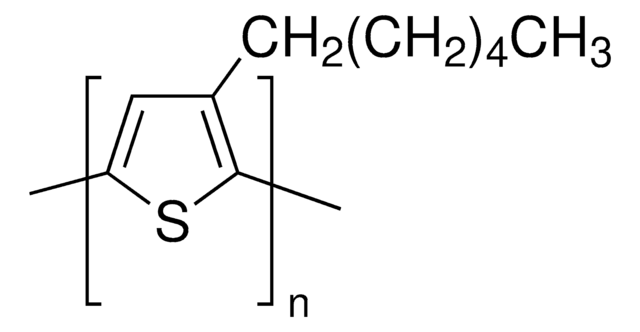
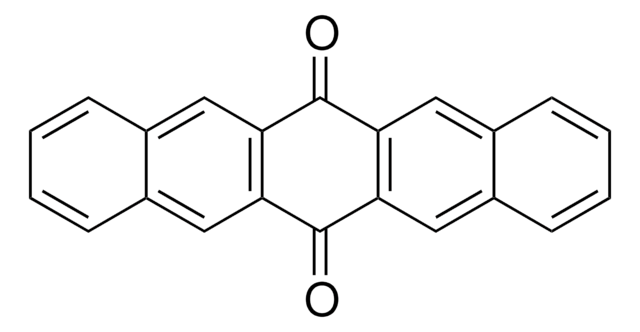
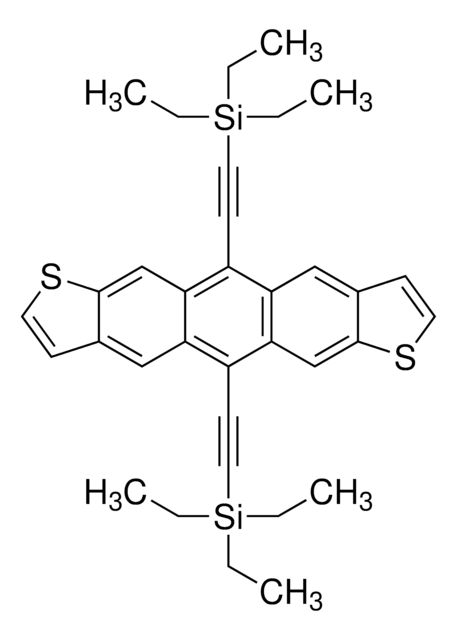

![Benz[b]anthracene 98%](/deepweb/assets/sigmaaldrich/product/structures/197/885/3a015625-5e09-4f15-8b17-4cc285304fc7/640/3a015625-5e09-4f15-8b17-4cc285304fc7.png)
